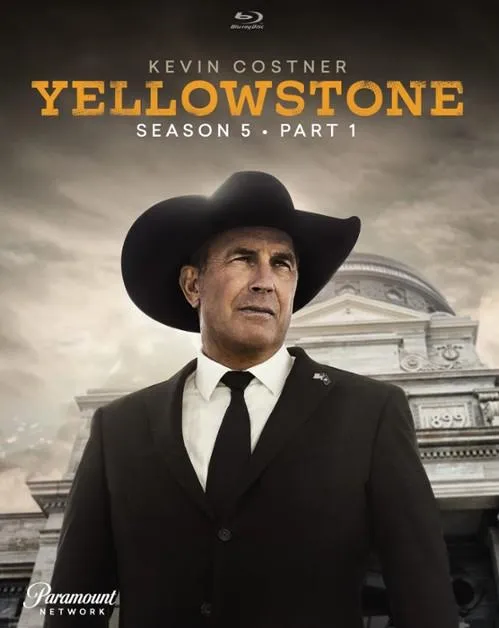
Native American Representation Controversy Hits Yellowstone
Hollywood has long struggled with the issue of authentic Native American representation, and the latest controversy surrounding Yellowstone is no exception. The popular series, created by Taylor Sheridan, has been praised for its storytelling and depiction of modern ranching life, including the struggles of Native communities. However, recent revelations regarding actress Kelsey Asbille’s claimed Cherokee heritage have sparked heated discussions about the authenticity of Indigenous representation in the entertainment industry.
The Controversy: Asbille’s Cherokee Claims Disputed
Actress Kelsey Asbille (also credited as Kelsey Chow) portrays Monica Dutton, a Native American character in Yellowstone. However, questions about her claimed Eastern Band Cherokee ancestry have resurfaced after a recent investigation led by respected Native American actor-producer Sonny Skyhawk.
According to tribal records from the Eastern Band of Cherokee Indians (EBCI), there is no documentation of Asbille’s claimed Cherokee heritage—either as a tribal member or as a descendant. This contradicts past statements made by Asbille, who has publicly identified as having Cherokee ancestry in previous interviews.
Why Does This Matter?
For many in the Native community, this revelation is more than just a case of misrepresentation—it reflects a broader issue in Hollywood, where non-Native actors have historically been cast in Indigenous roles, often at the expense of Native talent.
Native American actor Adam Beach (Suicide Squad, Windtalkers) was among the first to call out the casting choice. Beach emphasized that there are countless talented Native actresses who could have played Monica Dutton but were overlooked in favor of an actress whose claimed heritage could not be verified.
“This is why we as Native actors and filmmakers must continue to push for authentic representation,” Beach stated. “If we don’t speak up, Hollywood will continue to tell our stories without us.”
Sheridan’s Casting Promises vs. Reality
The controversy also raises questions about Taylor Sheridan’s stated commitment to casting Native actors for Native roles. Sheridan, who has worked closely with Native actors in Yellowstone and 1883, has previously asserted that he has a rigorous vetting process for ensuring authenticity in Indigenous casting.
Yet, the revelation about Asbille’s ancestry brings his vetting process into question:
How thoroughly are ancestry claims being verified?
Are tribal records and official recognition considered in the decision-making process?
Why did an actress with no verified Cherokee ancestry land a major Native American role?
Sheridan has maintained a reputation for working with Native actors, including Gil Birmingham (Comanche) and Mo Brings Plenty (Lakota), but this situation suggests that more transparency and accountability are needed when casting Indigenous characters.
The Bigger Issue: Hollywood’s Ongoing Misrepresentation of Native Actors
This is not the first time Hollywood has faced backlash for casting non-Native actors in Native roles:
Johnny Depp as Tonto in The Lone Ranger – Despite claiming vague Native ancestry, Depp had no tribal enrollment or verification. (honorary Comanche membership)
Taylor Lautner in Twilight – Lautner was promoted as having Native ancestry but had no documented tribal affiliation.
Saginaw Grant’s Fight for Authenticity – The late Sac & Fox actor spent his career advocating for Native actors in Native roles.
These examples demonstrate a longstanding pattern where non-Native actors are prioritized over authentic Indigenous talent, often based on self-reported claims rather than verified heritage or community connection.
What This Means for Cherokee and Native Communities
For our Cherokee readers and the broader Native American community, this controversy highlights a critical need for better representation, accountability, and respect for tribal sovereignty in Hollywood.
📌 Verification Matters: Claiming Native identity without tribal verification undermines Indigenous sovereignty and misrepresents our history and culture.
📌 Opportunities for Native Talent: There are countless skilled Native actresses who deserve roles that reflect their authentic heritage.
📌 Supporting Native Filmmakers: Instead of waiting for Hollywood to get it right, we need to support Native-led productions that tell stories from our own perspectives.
Moving Forward: How Can We Support Authentic Native Representation?
Demand Better from Hollywood – Use your voice on social media and within entertainment circles to push for authentic casting.
Support Native Actors and Films – Watch and promote Native-led projects like Reservation Dogs, Killers of the Flower Moon, and Indigenous independent films.
Hold Casting Directors Accountable – Encourage production companies to consult tribal nations when casting Native roles.
Educate the Public – Share accurate information about Cherokee and Native identity, ensuring that people understand the difference between ancestry claims and actual citizenship in a tribal nation.
Final Thoughts: A Wake-Up Call for Hollywood
The Yellowstone controversy is just another reminder that Hollywood still has work to do when it comes to authentic Native representation. While progress has been made, the casting of non-Native actors in Indigenous roles must stop.
If production companies are truly committed to authenticity, they must take tribal records and Indigenous identity seriously—not just when it’s convenient, but as a standard practice in all Native storytelling.
What are your thoughts on this controversy? Should Hollywood implement stricter verification standards when casting Native roles? Let’s continue the conversation.
Make sure you subscribe to our newsletter: Join Today
Image courtesy of Film Web